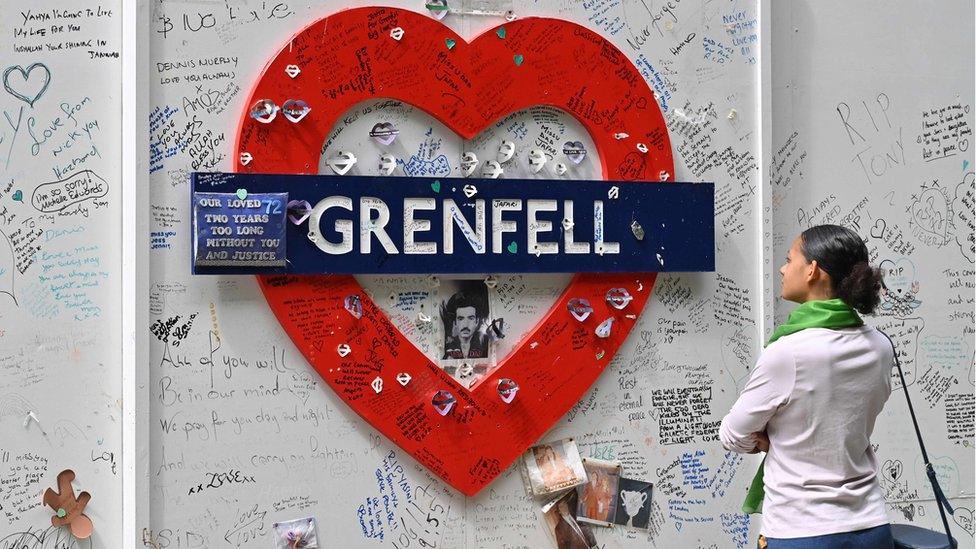Grenfell Tower inquiry: Fire 'inextricably linked with race'
- Published

The Grenfell Tower fire inquiry "must not ignore" the impact of race and poverty on the disaster, a lawyer representing survivors has said.
Leslie Thomas QC, also representing bereaved families, said the 2017 fire was "inextricably linked with race".
And he urged the inquiry to be on the "right side of history" when considering how the issue contributed towards the deaths of the 72 victims.
The inquiry returned this week after a four-month break due to coronavirus.
"The Grenfell fire did not happen in a vacuum," said Mr Thomas in his opening statement.
"A majority of the Grenfell residents who died were people of colour.
"Grenfell is inextricably linked with race. It is the elephant in the room.
"This disaster happened in a pocket of one of the smallest yet richest boroughs in London.
"Yet the community affected was predominantly working-class. That is the stark reality that cannot be ignored."
Mr Thomas said there were "parallel themes" between the Grenfell fire, the killing of George Floyd in the US and the "disproportionate" number of coronavirus deaths among people from minority ethnic backgrounds, adding: "Race and state obligation are at the heart of all three cases."
The Grenfell Next of Kin group has called for the inquiry to "investigate the extent of institutional racism as a factor" in the fire in June 2017.
Legal submissions made to the inquiry explain there were four visitors to the tower among the dead and also stillborn Baby Logan Gomes and then adds: "Of the remaining 67, 57 were from BAME (black, Asian and other ethnic minority) communities.
"In the English Housing Survey 2017-2018, it was found that 40% of those living in high-rise buildings in the social rented sector are black, Asian or other. This, compared to the per cent of the population (14%), is high."
Mr Thomas told the inquiry chairman Sir Martin Moore-Bick: "This is your time of action to break the cycle of disengagement with the issue of race and inequality.
"What will this inquiry be remembered for? You will undoubtedly want it to be on the right side of history."
On Monday, the inquiry heard how a senior fire safety engineer did not think putting cladding on Grenfell Tower would pose any "issues" for safety.
In its first phase, the inquiry concluded that cladding fuelled the fire in June 2017. The second phase is examining how it could have happened in the first place.
- Published6 July 2020
- Published30 May 2018